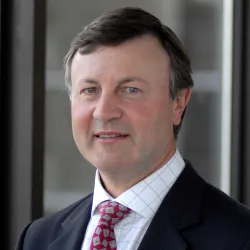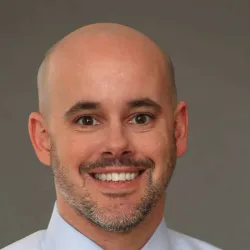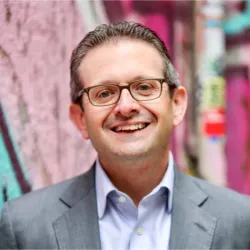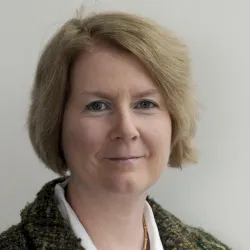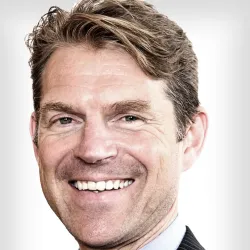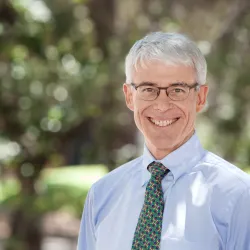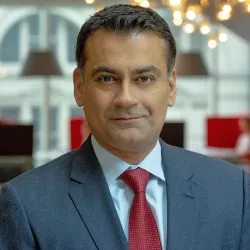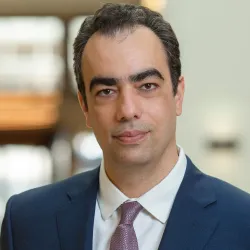Agenda
Agenda
Libor Live
08:25 – 08:30
Chair's opening remarks
08:25 - 08:30
08:30 – 09:30
Assessing Libor transition in Asia
While significant progress has been made, Asian markets require further consultation and market momentum to catch up to similar development stages of Europe and the US. How is Asia Libor transition progressing and what does the US dollar delay mean for As
08:30 - 09:30
- Transition progress for key currencies (Yen, HKD, SGD, AUD)
- Alternative lending rates
- How does the reprieve of USD Libor cessation impact transition in Asia?
- What does SOFR mean for USD financing?
Jing Gu is a Senior Counsel at ISDA. Prior to joining ISDA, Ms. Gu was a Director in the Legal and Compliance Department of Credit Suisse (Hong Kong) Limited where she specialized in OTC derivative products and structured finance with a geographical emphasis on Greater China. Before joining Credit Suisse, she was an associate at Allen & Overy Hong Kong Office where she advised a number of international banks and Chinese banks on derivative transactions and ISDA documentation.
Ms. Gu holds a Master of Laws degree from Peking University, an LL.M. degree from New York University School of Law and a Master of Laws degree from Kyushu University in Japan. Ms. Gu holds the lawyer qualification certificate in China, is qualified in the State of New York and is also admitted as a solicitor of the High Court of Hong Kong. Ms. Gu has been working for ISDA since 2008.
William started as an Aeronautic engineer in UK after graduating from Imperial College in 1988. He moved back to Hong Kong in 1994 as EM rates trader in Chase Manhattan Bank.
In 1998, William joined Goldman Sachs and was promoted as Co-Head of Macro Trading, Asia Pacific. He then joined Merrill Lynch in 2002 as Managing Director to develop Asia Currency and Rates Trading businesses.
In 2005, William joined HSBC HK to run Asian rates trading. He was promoted to Head of Rates and Credit, Asia Pacific in 2016. Since May 2020, William has expanded his role to Head of FICC Trading in Asia. In 2023, he has been added further responsibility of Head of Markets and Securities Services in HK.
John Feeney is the Head of Conduct (C&IB) at National Australia Bank Limited (NAB). He has been in financial markets for over 30 years in trading and management roles across most asset classes. Prior to joining NAB, Mr. Feeney has worked for Commonwealth Bank in Sydney, Citi in Sydney and London and Macquarie Bank in Sydney. Over this time he has traded and managed interest rate derivate, foreign exchange, traded credit, commodities and funding businesses. Currently, Mr. Feeney is an ISDA Board Member and an AFMA Board member.
12:00 – 12:30
Regulatory priorities for 2021
11:00 - 11:30
Edwin Schooling Latter is Director of Markets and Wholesale Policy at the Financial Conduct Authority where his responsibilities encompass policy in relation to primary and secondary markets, trading venues, trading conduct, benchmarks, asset management and pensions. From 2011-2014 Edwin was head of the Financial Market Infrastructure
Directorate at the Bank of England, responsible for supervision of CCPs, securities settlement systems, and systemically important payment systems, and for the Bank’s input to policy making on central clearing and OTC derivatives reforms. Prior to appointment as head of MID, Edwin worked in the Bank’s Financial Stability area for several years, including as secretary to the Bank’s Financial Stability Committee. Edwin was also previously Managing Director of UK payment system, LINK Interchange Network Ltd.
13:00 – 14:00
UK transition: reflection and review
By the end of 2021, publication of all sterling Libor will cease and it’s no longer about getting ready but being ready. By April, many of the transition milestones will have been implemented – notably the ban on Libor lending by end of March. So, what we
13:00 - 14:00
- Reflecting on progress in Q1 and identifying the key milestones for the rest of 2021
- How have the curbs on Libor lending been digested?
- What does synthetic Libor look like in practice?
- Term SONIA use cases
- Risk scenario: what happens on 31 December 2021 and 1 Jan 2022 from an operational perspective?
Alastair Hughes is Head of Division in the Bank of England’s Markets Directorate, responsible for work on risk-free rate transition. Prior to this he spent most of his career as a supervisor of Globally Systemically Important Banks (GSIBs). Most recently as a Head of Division in the Prudential Regulation Authority (PRA) covering the London operations of North American firms including JPMorgan, Citigroup and Bank of America. He spent several years as a member of the FSB’s Senior Supervisor Group, a forum for senior representatives of supervisory authorities to engage in dialogue on risk management practices, governance, and other issues concerning complex, globally-active financial institutions.
Based at Integreon’s London Office, Dean brings a wealth of legal and regulatory experience having worked or consulted at several tier one investment banks in a senior or lead capacity in the financial products transactional space over the last 15 years. Dean provides regulatory subject matter expertise in support of business development.
Prior to joining Integreon and most recently, Dean has provided IM services at Barclays on behalf of Deloitte, CRD IV support as part of a global regulatory project and led a legal clause extraction unit involving IM and CASS regulatory services, each at Credit Suisse, regulatory Brexit related services at JP Morgan, and negotiated the suite of custody documents and provided MiFID II regulatory support at BNYM for its provision of collateral management services.
Additionally, Dean has expertise in creating legal financial trading and regulatory project playbooks, negotiation guides, in-house contract templates, training materials and the running of training/workshops for up to 200 people. From a legal perspective, Dean rolled out emissions trading for the subsidiary of a large Japanese bank and Clearstream Repurchase Conditions for a large French bank. Dean was previously the global legal point person for control agreements for a large Spanish bank, having also provided training to its legal department.
14:10 – 14:20
Libor transition and legacy trading contracts: protocol adherence vs bilateral negotiations
14:10 - 14:20
Based at Integreon’s London Office, Dean brings a wealth of legal and regulatory experience having worked or consulted at several tier one investment banks in a senior or lead capacity in the financial products transactional space over the last 15 years. Dean provides regulatory subject matter expertise in support of business development.
Prior to joining Integreon and most recently, Dean has provided IM services at Barclays on behalf of Deloitte, CRD IV support as part of a global regulatory project and led a legal clause extraction unit involving IM and CASS regulatory services, each at Credit Suisse, regulatory Brexit related services at JP Morgan, and negotiated the suite of custody documents and provided MiFID II regulatory support at BNYM for its provision of collateral management services.
Additionally, Dean has expertise in creating legal financial trading and regulatory project playbooks, negotiation guides, in-house contract templates, training materials and the running of training/workshops for up to 200 people. From a legal perspective, Dean rolled out emissions trading for the subsidiary of a large Japanese bank and Clearstream Repurchase Conditions for a large French bank. Dean was previously the global legal point person for control agreements for a large Spanish bank, having also provided training to its legal department.
15:00 – 16:00
Transition timelines and looking ahead for USD Libor
Libor’s regulator IBA is consulting on a plan to continue publishing five popular US Libor settings until June 30, 2023 – 18 months after other currencies. What does this extension mean for the market?
16:00 - 17:00
- How has the transition extension affected market participants?
- Development of term SOFR in the market
- SOFR liquidity challenges
- Credit-sensitive rates as part of a multi-rate environment
- What solutions are being considered for tough legacy contracts?
- Will there be a synthetic USD Libor?
Tom is responsible for Morgan Stanley’s transition efforts to alternative reference rates to
replace LIBOR through the firm’s Global LIBOR Transition Steering Committee. This
group, spanning ISG, Wealth Management and Investment Management, will ensure that
all businesses and infrastructure organizations have a consistent set of Firm-level
guidelines, their own transition plans and accountability for transition readiness before
year-end 2021.
Tom most recently led the firm’s Global Business Continuity Management Organization,
which is responsible for strategic planning and risk management for potential cyber and
physical disruptions. He is a member of the firm’s Securities Operating Committee, Risk
Management Committee and Asset/ Liability Management Committee.
Prior to being named Vice Chairman, Tom was the Global Head of the Bank Resource
Management Division where he was responsible for the firm's secured funding, securities
lending, global hedging and collateral management activities.
Beginning his career in the industry in 1977, Tom joined Morgan Stanley in 1986 and has
been engaged in the Firm’s funding, collateral and hedging activities throughout his
career at the firm. Based in New York, Tom has also completed multi-year assignments
in Morgan Stanley’s London and Tokyo offices.
In April, 2019, Tom was named Chair of the Alternative Reference Rates Committee
(ARRC) by the Federal Reserve Board. The ARRC is a group of private-market
participants convened to help ensure a successful transition from USD LIBOR to a more
robust reference rate.
Tom was appointed Chair of the US Commodity Futures Trading Commission’s Market
Risk Advisory Committee (MRAC) Interest Rate Benchmark Reform Subcommittee in
October, 2018.
Tom served as Chair of the Treasury Market Practices Group (TMPG) until May 2019.
The TMPG is sponsored by the New York Federal Reserve and is an industry group
committed to supporting the integrity and efficiency of the U.S. Treasury and Agency
Mortgage Securities Markets.
Tom serves on the board of directors of International Swaps and Derivatives Association,
Inc. (ISDA). Tom was appointed to the Alternative Reference Rate Committee,
sponsored by the Board of Governors of the Federal Reserve in 2014. Tom previously
served on the Financial Research Advisory Committee to the US Treasury Office of
Financial Research from 2012 to 2017.
Chris manages for SIFMA's securitization and corporate credit advocacy and other activities.
SIFMA has a special focus on agency MBS markets and maintains a collection of market standards and trading practices governing the TBA market. For the last few years, primary mandates in this area have been regulatory reform, the implementation of a single security for TBA trading, FINRA 4210 margin requirements, securitization capital requirements, and the world of GSE/housing finance reform.
In the fall of 2018 Chris took over SIFMA’s corporate credit activities in addition to the securitization responsibilities. This includes issues such as fixed income market structure, TRACE, and execution of SIFMA’s Insurance and Risk-Linked Securities Conference.
He is also the primary staffer for SIFMA's activities related to LIBOR and the transition to alternative reference rates in the US and participates on the Federal Reserve’s Alternative Reference Rates Committee along with a number of subcommittees.
He also helps to coordinate SIFMA's activities related to fintech.
Chris joined the Bond Market Association (predecessor to SIFMA) in 2005 as the analyst for the MBS and Securitized Products Division. He became head of the securitization group in 2013. Prior to joining SIFMA, he was an accountant in the Retail Securitization Accounting and Investor Reporting group at JPMorgan Chase & Co., and was responsible for investor reporting and other administration of auto, student loan, and mortgage securitization transactions.
Chris holds Bachelor’s Degrees in Economics and Government from Franklin and Marshall College.
Jack Hattem, CFA, Managing Director, is the Deputy CIO of BlackRock’s Obsidian platform which includes The BlackRock Obsidian Fund, a global fixed income multi-strategy hedge fund, and The Obsidian Relative Value Strategy. Mr. Hattem has oversight of the Derivatives Alpha platform within the Fundamental Fixed Income group and is a member of the firm’s Steering Committee on LIBOR transition - SteerCo.
Previously, he was the head of interest rate derivatives strategies within BlackRock Fixed Income. He began his investment career as an analyst in BlackRock’s Portfolio Analytics Group in 2000, where he was responsible for analytics and risk management for BlackRock’s alternative investment products, before joining the Portfolio Management Group in 2003.
Mr. Hattem serves on the Board of Directors of the International Swaps and Derivatives Association (ISDA) and is a member of the Federal Reserve’s Alternative Reference Rates Committee (ARRC). He is a regular guest lecturer at Columbia Business School. He earned a BA degree, cum laude, in economics from the University of Pennsylvania in 2000.
Subadra Rajappa joined Societe Generale in October 2014 as Head of US Rates Strategy. In her current role she is responsible for publishing thematic research on US rates markets and highlighting relevant trading opportunities. She is a frequent speaker at internal and industry conferences where she presents her broader market views to the firm’s clients. She currently represents SG at the alternative reference rate committee (ARRC) and is actively involved in discussions with industry groups around transitioning to the new reference rate.
Subadra has over 20 years of experience in the financial industry. Previous at Morgan Stanley, she was a senior rates strategist focused on macro themes in the rates markets. She was the lead strategist covering many topics and presenting in-depth research in fixed-income derivatives, inflation, money markets and the evolving regulatory environment.
Subadra has extensive experience in global fixed-income markets including positions in research, sales and strategy at Morgan Stanley and Citigroup. She has a strong quantitative background and started her career in finance at Salomon Brothers as a quantitative analyst where she focused on emerging market derivatives and credit derivatives before transitioning to rates.
Kris Devasabai is the New York-based editor-in-chief of Risk.net. Previously, he was bureau chief and US editor of Risk magazine. He manages the editorial team. Prior to joining Risk, Kris covered hedge funds, asset management, cross-border investing and law for several publications.
Kris holds a bachelor’s degree in law and government from the University of Manchester, and he completed his legal training at the Inns of Court School of Law in London. He was called to the bar of England and Wales in 2003.
16:15 – 16:45
Ameribor and choice: a case study of the birth of a new benchmark
16:15 - 16:45
Richard L. Sandor (Ph.D., Dr. sc. h. c.) is Chairman and CEO of the American Financial Exchange (AFX) established in 2015. AFX is an electronic exchange for direct interbank/financial institution lending and borrowing. The AFX flagship product, the AMERIBOR benchmark index, reflects the actual borrowing costs of thousands of regional, mid-sized and community banks across the U.S.
He is also the CEO of Environmental Financial Products (EFP), which was the incubator to the Chicago Climate Exchange (CCX).
Known world-wide as the “Father of Financial Futures,” in 2002 he was named by TIME Magazine a “Hero of the Planet.” In 2007 as one of the magazine’s “Heroes of the Environment” for his work as the “Father of Carbon Trading.” And in October 2013, Dr. Sandor was awarded the title of awarded the title of Chevalier de la Legion d’Honneur (Knight of the Legion of Honor) in France, for his accomplishments in the field of environmental finance and carbon trading.
He served on the board of directors of leading commodities and futures exchanges such as the Chicago Mercantile Exchange, Intercontinental Exchange, Chicago Board of Trade, London International Financial Futures and Options Exchange and Tianjin Climate Exchange, as well as several philanthropic and non-for-profit organizations.
He authored and co-authored numerous academic and popular press publications and books on finance and environmental subjects. His most recent books include “As I Saw It,” a compilation of 5 years of monthly articles from Environmental Finance, and “Electronic Trading and Blockchain: Yesterday, Today and Tomorrow,” published by World Scientific in February 2017 and April 2018, respectively.
He earned Bachelor of Arts degree from the City University of New York, Brooklyn College, and a Ph.D. in Economics from the University of Minnesota. In addition, he holds an honorary degree of Doctor of Science, honoris causa, from the Swiss Federal Institute of Technology (ETH).
16:45 – 16:50
Chair's closing remarks
16:45 - 16:50
Kris Devasabai is the New York-based editor-in-chief of Risk.net. Previously, he was bureau chief and US editor of Risk magazine. He manages the editorial team. Prior to joining Risk, Kris covered hedge funds, asset management, cross-border investing and law for several publications.
Kris holds a bachelor’s degree in law and government from the University of Manchester, and he completed his legal training at the Inns of Court School of Law in London. He was called to the bar of England and Wales in 2003.
14:00 – 14:45
Transition in the loan market
13:30 - 14:20
- Following the ban on Libor lending, what is the state of the loan market now in the UK? What has the market learned and what work still has to be done?
- What is the outlook for multi-currency syndicated loans given the phased transition approach?
- Legacy Libor loans; fallbacks, conduct and litigation risk
- Will the US loan market adopt SOFR or an alternative?
Clare joined the Loan Market Association in 1999 after spending two years in the syndications department at Sumitomo Bank, working on loans in Europe, the Middle East and Africa. Prior to this she spent two years at the British Museum Development Trust raising funds for the Museum's Great Court project. Before joining the British Museum, Clare had spent some eight years at Sumitomo in the international department, including two years at the bank's head office in Tokyo, where she helped establish a syndications desk. In London she worked mainly on origination in various Western European and Nordic countries.
Clare has an honours degree in Modern and Medieval Languages from the University of Cambridge. She is a member of the Bank of England’s Working Group on Sterling Risk-Free Reference Rates and chairs the Sterling Loans sub-group.
Pranav Thakkar is a Global Fixed Income Business Manager at Bloomberg. He manages the Credit analytics (YAS), Repo's, Horizon Analysis and Credit workflows products. Through 20+ years' working in Fixed Income, Pranav has led the development of Credit analytics for Corps, Govt, Loans, Prfds, Mmkt and Munis securities. He also managed the initial launch and business strategy of PORT Fixed income Intraday, Scenario analysis and Portfolio management tools. He currently heads up the FI Libor Transition initiative efforts for Bloomberg. Pranav holds a Master's in Computer Science from the Rochester Institute of Technology.
15:15 – 16:00
Transition in derivatives markets
15:00 - 15:50
- Once fallback spreads have been cemented, what does this mean for valuations, liquidity, risk management and trading opportunities?
- Do CCP Libor switch mechanisms help for an orderly transition?
- Is there a case for pro-active portfolio conversion strategies ahead of the switch?
- How should market participants think about transitioning derivatives where these hedge other assets or liabilities?
- How will the delay in USD Libor cessation affect transition of cross-currency swaps?
- What do tough legacy fixes, such as synthetic Libor mean for derivatives markets?
- What transition challenges still remain for non–linear derivatives?
Chris is Managing Director, Global Head of Derivatives Trading for Prudential Financial. His responsibilities include global fixed income and equity derivatives as well as foreign exchange. Chris began his career with Prudential in 1989, and has worked within Prudential’s derivatives subsidiary since 1993. He has been in his current role since 2002.
Chris holds a BA in Economics from Macalester College and an MBA with Distinction in Finance with an International Concentration from NYU. Chris has earned both the CFA and CLU designations.
Philip Whitehurst is Head of Service Development for LCH’s Rates business which includes SwapClear, the market-leading swap clearing service it operates.
Based in London, Philip has over 25 years' experience in the OTC Derivatives markets in a range of functions and firms. Following initial roles trading GBP and DEM interest rate swaps and options, Philip spent more than 10 years structuring fixed income derivatives solutions for institutional and retail clients the APac and EMEA regions for the major international investment banks.
Philip joined LCH in 2009 to lead SwapClear’s Product Management function, and has been heavily involved in the design & development of many of LCH’s recent initiatives including SwapClear’s client clearing models, its compression services and the nascent extension into non-cleared OTC derivatives. He has most recently been representing LCH in industry forums, such as ARRC, established to address the challenge of Benchmark Reform.
Marcus Burnett is the Director of SOFR Academy, an education technology firm dedicated to building leaders in a risk-free rate based financial ecosystem for people, organizations and communities. SOFR Academy’s panel of advisors includes leading Academics from Harvard and MIT. Marcus is a former Interest Rate Derivatives trader.
Marcus is an IBOR Transition industry leader assisting industry working groups, trade associations, and financial market participants in planning and execution of programs focused on IBOR transition to RFR’s across the G5 currencies. He is a member of the Bank of England sponsored Working Group on Sterling Risk-Free Reference Rates SONIA Regulatory Dependencies Task Force and ‘Tough Legacy’ Task Force both chaired by the Financial Conduct Authority. He has delivered numerous public and private IBOR transition education sessions and advises clients on best practice and regulatory expectations. Marcus has been interviewed by the Wall Street Journal and cited by Bloomberg, American Banker and the International Financial Law Review.
Marcus is a member of the American Australian Association established by Sir Keith Murdoch and in 1948. Marcus resides in New York city.
16:30 – 17:20
Credit-sensitive rates and the alternative view
16:30 - 17:20
- What’s the case for credit sensitivity?
- What SOFR alternatives are available and what stages of development or adoption are we seeing?
- What type of products would be suited to credit-sensitive rates?
- What would adoption of credit-sensitive rates mean for derivatives markets and hedging strategies?
- Would a multi-rate environment be good or bad for US markets?
- Developing liquidity
Darrell Duffie
Dean witter distinguished professor of finance at the graduate school of business
Standford University
Darrell Duffie, Dean Witter Distinguished Professor of Finance at the Graduate School of Business, STANFORD UNIVERSITY
Darrell Duffie is the Dean Witter Distinguished Professor of Finance at Stanford University's Graduate School of Business, and Professor (by courtesy) in the Department of Economics, Stanford University.
Duffie is a Fellow and member of the Council of the Econometric Society, a Research Fellow of the National Bureau of Economic Research, a Fellow of the American Academy of Arts and Sciences, and a member of the board of directors of Moody's Corporation. He was the 2009 president of the American Finance Association, and in 2014 chaired the Financial Stability Board's Market Participants Group on Reference Rate Reform.
Duffie's recent focuses on capital markets and financial stability. His research is published in journals such as Econometrica, Journal of Political Economy, and Journal of Finance, among others. His recent books include How Big Banks Fail (Princeton University Press, 2010), Measuring Corporate Default Risk (Oxford University Press, 2011), and Dark Markets (Princeton University Press, 2012).
Mr. Abdelnour is currently head of USD, GBP, and CAD short interest rate swap trading at Citibank. Karl joined Citibank in 2011 from JP Morgan. At Citi, Karl overseas swap trading in short tenors across all indices in these currencies, and overseas Fed Fund and SOFR interest rate swap trading across the term structure in the United States. Prior to this role, Karl worked as a US Dollar Interest Rate swaps trader in JP Morgan’s London office where he was responsible for market making interest rate swaps in the short end as well as across the curve.
Karl began his career at JP Morgan in 2011, where he worked in various roles starting in the firm’s Asset Management division, and then moving into Interest Rate sales where he covered US and UK based macro hedge funds.
Karl holds a B.Sc. in Mechanical Engineering and an M.Sc. in Mechanical Engineering from New York University. Mr. Abdelnour holds FINRA licenses Series 7 and 63.
Umesh Gajria is Global Head of Index-Linked Products at Bloomberg, overseeing index derivative products and analytics. In addition, he leads the firm’s efforts in the transition to Risk Free Rates (RFRs) including ISDA fallbacks. Earlier he served as COO for Bloomberg’s Enterprise Product business, after joining the firm in 2017. Previously, Mr. Gajria was an Executive Director of Global Business Development at CME Group where he led growth initiatives for the Financial Products business. Before that he worked in various roles at US Bank, JP Morgan and Lexis Nexis. Mr.
Samim Ghamami is currently an economist at the U.S. Securities and Exchange Commission, where he works with the senior management on the reform of the US Treasury market and several other SEC capital market initiatives. Ghamami is also a senior researcher and an adjunct professor of finance at New York University, a senior researcher at UC Berkeley Center for Risk Management Research and the Department of Economics, and a senior advisor at SOFR Academy.
Ghamami has been a senior economist at Goldman Sachs and Millennium Management. He has been an adjunct associate professor of economics at Columbia University. Ghamami has also been an associate director and a senior economist at the U.S. Department of the Treasury, Office of Financial Research, and an economist at the Board of Governors of the Federal Reserve System.
Ghamami’s work has broadly focused on the interplay of finance and macroeconomics, and on financial economics and quantitative finance. His work on asset management, banking, economic policy, financial stability, financial regulation, risk management, and central clearing has been presented and discussed at central banks and international financial institutions. He has been an advisor to the Bank for International Settlements and worked as an expert with the Financial Stability Board on post-financial crisis reforms in 2016 and 2017. Ghamami also served on the National Science Foundation panel on Financial Mathematics in 2017 and 2018. Ghamami received his Ph.D. in Mathematical Finance and Operations Research from USC in 2009. His publications have appeared in different journals including Management Science, Journal of Applied Probability, Mathematics of Operations Research, Journal of Financial Intermediation, Journal of Credit Risk, Journal of Derivatives, Quantitative Finance, and Journal of Risk.
17:20 – 17:25
Closing remarks
17:00 - 17:10



